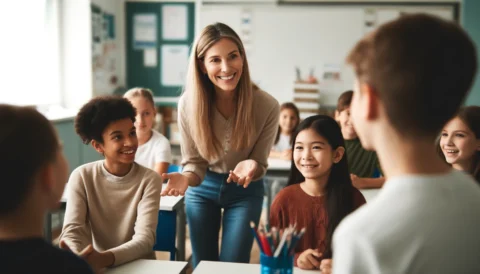Recent research has unveiled a fascinating aspect of human cognition: our brains are inherently programmed to learn more effectively from individuals we like. This phenomenon underscores the importance of social connections and personal preferences in the learning process, offering profound implications for educational strategies, workplace training, and interpersonal relationships.
 The Science Behind the Findings
The Science Behind the Findings
A study conducted by researchers at The Brighter Side of News highlighted that our brains exhibit a pronounced tendency to absorb information more readily from people we have positive feelings towards. This is linked to the brain’s reward system, where liking someone activates neural pathways associated with pleasure and motivation. When we like a person, our brain’s reward centers light up, making us more receptive to the information they provide.
The study utilized advanced neuroimaging techniques to observe brain activity in participants as they received information from various sources. The results consistently showed heightened activity in the brain’s reward circuits when the information came from a liked individual. This suggests that our brain associates learning from liked individuals with positive reinforcement, enhancing our ability to retain and understand the information.
Implications for Education and Training
These findings have significant implications for educational and professional settings. Traditional methods often emphasize the authority and expertise of the instructor, but this research suggests that the personal connection between the teacher and the learner is equally crucial. Educators and trainers who can establish a positive rapport with their students or trainees are likely to be more effective in conveying information and fostering understanding.
Creating Positive Learning Environments
To leverage this insight, educators and trainers can focus on building strong, positive relationships with their students. This can be achieved through:
- Personal Engagement: Taking the time to understand students’ interests, strengths, and challenges can help create a supportive learning environment.
- Positive Reinforcement: Encouraging and acknowledging students’ efforts and achievements can strengthen the personal connection and motivate learners.
- Interactive Learning: Incorporating interactive and collaborative activities that promote social bonding among students can enhance the overall learning experience.
Workplace Training and Development
In the workplace, managers and trainers can improve training outcomes by fostering a positive relationship with their employees. This involves not only delivering content effectively but also engaging with employees on a personal level, understanding their career goals, and providing support and encouragement.
Social Learning and Influence
The preference for learning from liked individuals also extends to social learning and influence. In social networks, people are more likely to adopt behaviors, beliefs, and practices from those they have positive relationships with. This has implications for marketing, social campaigns, and peer-led interventions, where the influence of liked individuals can be harnessed to drive positive change.
The Role of Trust and Empathy
Trust and empathy are foundational to liking someone and play a critical role in the learning process. When we trust someone, we are more open to their ideas and perspectives. Empathy, or the ability to understand and share the feelings of another, further strengthens this bond, making the learning experience more impactful.
Conclusion
The discovery that our brains are wired to learn more effectively from people we like highlights the importance of personal connections in the learning process. By fostering positive relationships, educators, trainers, and leaders can enhance their effectiveness and create more engaging and productive learning environments. As we continue to explore the intricacies of human cognition, this insight offers a valuable tool for improving educational and professional outcomes, and for understanding the profound impact of social bonds on our ability to learn and grow.



